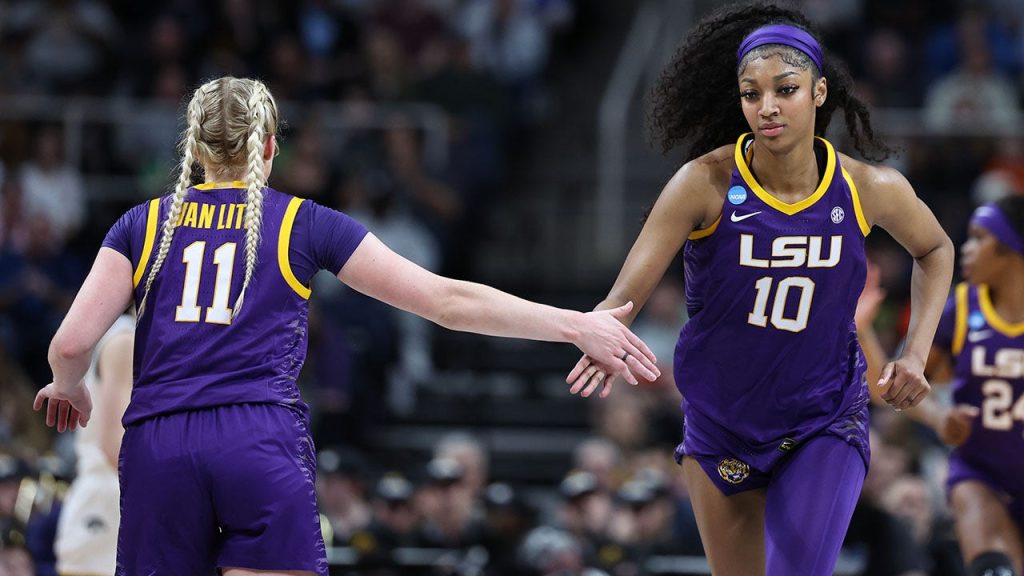LSU women’s basketball team faced criticism on Monday night after not coming out for the national anthem before their regional final game against the Iowa Hawkeyes. A video showed Iowa players holding hands during the anthem while LSU had left the court. Iowa went on to win the game 97-84, led by Caitlin Clark’s 41 points. When asked about the decision, LSU head coach Kim Mulkey attributed it to routine and stated that she was unaware of when the anthem was played, emphasizing that it was not intentional.
This incident was not the first time LSU was not on the floor for the national anthem before playing Iowa. Last year, during the national championship game, the Tigers also did not come out for the anthem, sparking controversy on social media. In that game, LSU had tied Iowa at halftime but ultimately fell short as Clark’s performance led to their defeat. The Comeback highlighted this history of LSU’s absence during the anthem, signaling a potential pattern of behavior that continues to cause outrage among fans and observers.
Despite Mulkey’s explanation that it was a routine practice for the team to come off the court at a certain time before the game, the decision not to be present for the national anthem has raised questions and criticism. Some argue that it is disrespectful to not show respect for the flag and country by participating in the anthem ceremony, while others point to the team’s focus on their game preparation and routines. The debate over the importance of standing for the anthem and the significance of such symbolic gestures in sports continues to be a controversial topic in the world of athletics.
Fans and spectators have expressed mixed reactions to LSU’s absence during the national anthem, with some defending the team’s right to handle their pregame routines as they see fit and others condemning their actions as disrespectful and unpatriotic. The clash of opinions reflects broader societal divisions over issues of patriotism, protest, and sportsmanship, with the debate likely to continue as these incidents spark further discussion and reflection on the role of national symbols in sporting events. As LSU faces backlash for their choice, the team may need to consider the potential consequences of not participating in the anthem ceremony in future games.
Moving forward, LSU women’s basketball team may need to reevaluate their approach to pregame rituals and consider the impact of their actions on fans, supporters, and the broader community. While the team’s focus on their game preparations is understandable, the decision to not be present for the national anthem has generated controversy and criticism. As they navigate these sensitive issues, LSU and other sports teams will need to find a balance between honoring tradition and respecting individual choices, all while upholding the values of sportsmanship and unity in the face of divisive debates over symbols and gestures in athletics.















